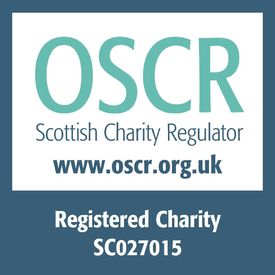K is for Kinship Care
Date published: 30th November 2020 inship Care
inship Care
What is kinship care?
Where a child is not able to live with their parents they sometimes go and live full-time with relatives or friends. This is often called ‘kinship care’. It can be a formal arrangement made through the courts or the children’s hearing system or less formal and arranged within the family.
The legal basis for kinship care
The basis for kinship care arrangements varies depending on the circumstances of a particular situation. It is important to know whether or not a child in a kinship care situation is looked after by the local authority.
| Not looked after | Looked after |
| An informal arrangement has been made by the family |
The child is subject to a compulsory supervision order or interim compulsory supervision order under the Children’s Hearings (Scotland) Act 2011, which requires her/him to live with the kinship carer |
| A kinship care order (sometimes called a residence order) under section 11 of the Children (Scotland) Act 1995) has been granted in favour of the kinship carer. | The child is accommodated by a local authority under section 25 of the Children (Scotland) Act 1995 |
| There is a permanence order under Part 2 of the Adoption and Children (Scotland) Act 2007 in respect of the child |
Local authority payments to kinship carers
The responsible Local Authority is determined by the location of the child prior to the kinship carer involvement and this may be different from where the kinship carer is living and raising the child. Local authorities generally make regular payments to kinship carers of looked after children, but the amount paid varies. Some local authorities also make payments to certain kinship carers of non-looked after children.
Kinship carer allowances – Scottish Government guidance
There is an agreement between the Scottish Government and local authorities that certain kinship carers should get financial support at the same level as the local authority’s fostering allowance rate (not including fostering fees). The agreement covers:
• Kinship carers of looked after children;
• Kinship carers where the child is subject to a kinship care order under section 11 of the Children (Scotland) Act 1995 or the carer is the child’s guardian under section 7 of the Children (Scotland) Act 1995, and
* the child was previously looked after by the local authority, or
* the child is at risk of becoming looked after, or
* was placed with the kinship carer by the local authority.
Scottish Government guidance suggests that local authorities deduct any ‘child-related’ benefits to which the kinship carer is entitled, and that a foster carer would not get, from the amount of the allowance. Specifically, child benefit and child tax credit (although not the disability or severe disability element) should be deducted if the kinship carer is eligible for these benefits. Guardian’s allowance, if payable, should not be deducted.
Where to access advice and information:
• Contact CARF’s general advice line on 0345 1400 095 between 8.30am – 4pm, Monday to Friday or via our website
• National Kinship Care Website for Scotland
• Children 1st
• For Fife children






